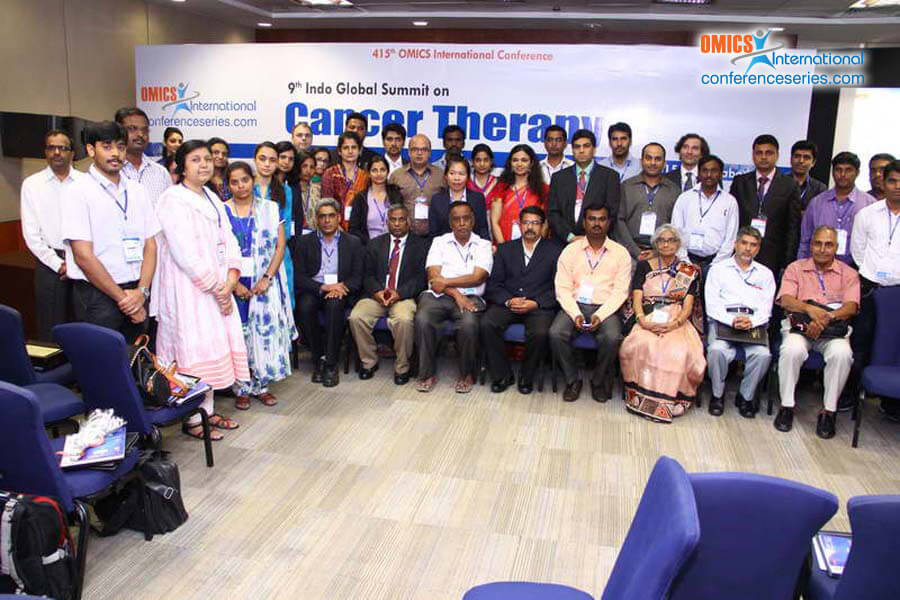
Archana Patil
K.L.E. University’s College of Pharmacy, India
Title: Design and Characterization of Thermo and pH Dual Responsive Polymeric Nanoparticles for Cancer Therapy
Biography
Biography: Archana Patil
Abstract
The principle objective of this research was to develop and characterize a biodegradable, thermo and pH dual responsive oxaliplatin-loaded chitosan-graft-poly (N-isopropylacrylamide) (CS-g-PNIPAAm) copolymeric nanoparticles as a tumor-targeting drug delivery system. CS-g-PNIPAAm copolymers were synthesized via soapless dispersion co-polymerization and characterized by FT-IR, 1H NMR (chemical structure) and DSC (LCST -Lower critical solution temperature). These copolymers could be efficiently loaded with oxaliplatin and Nanoparticles were evaluated for their morphology (SEM), particle size (TEM), zeta potential, loading efficiency and drug content. In vitro drug release study was carried out at different pH values (5.5, 6.5 and 6.8) & 40o C temperature as well as at physiological pH & temperature conditions. In vitro cytotoxicity study was performed on Human colon carcinoma cells HT-29. Nanoparticles exhibited porous inner structures with a particle size of 120-150 nm and zeta potential of about -61 ±12 mV. Loading efficiency and drug content were found to be 82.8% and 53.7% respectively. The drug release was slow at physiological pH and temperature i.e., only about 25% while the release rate was drastically increased to above 70% at acidic pH and temperature above LCST (40oC). Based on MTT assay the anti-tumor activity of drug loaded nanoparticles shows very less cytotoxicity as compaired to pure drug at pH 7.4 and 37o C and shows higher cytotoxicity than that of pure drug at 40oC and 6.5 pH on HT-29 cell lines. In conclusion, the obtained nanoparticles appeared to be of great promise in tumor targeted drug delivery of oxaliplatin.

